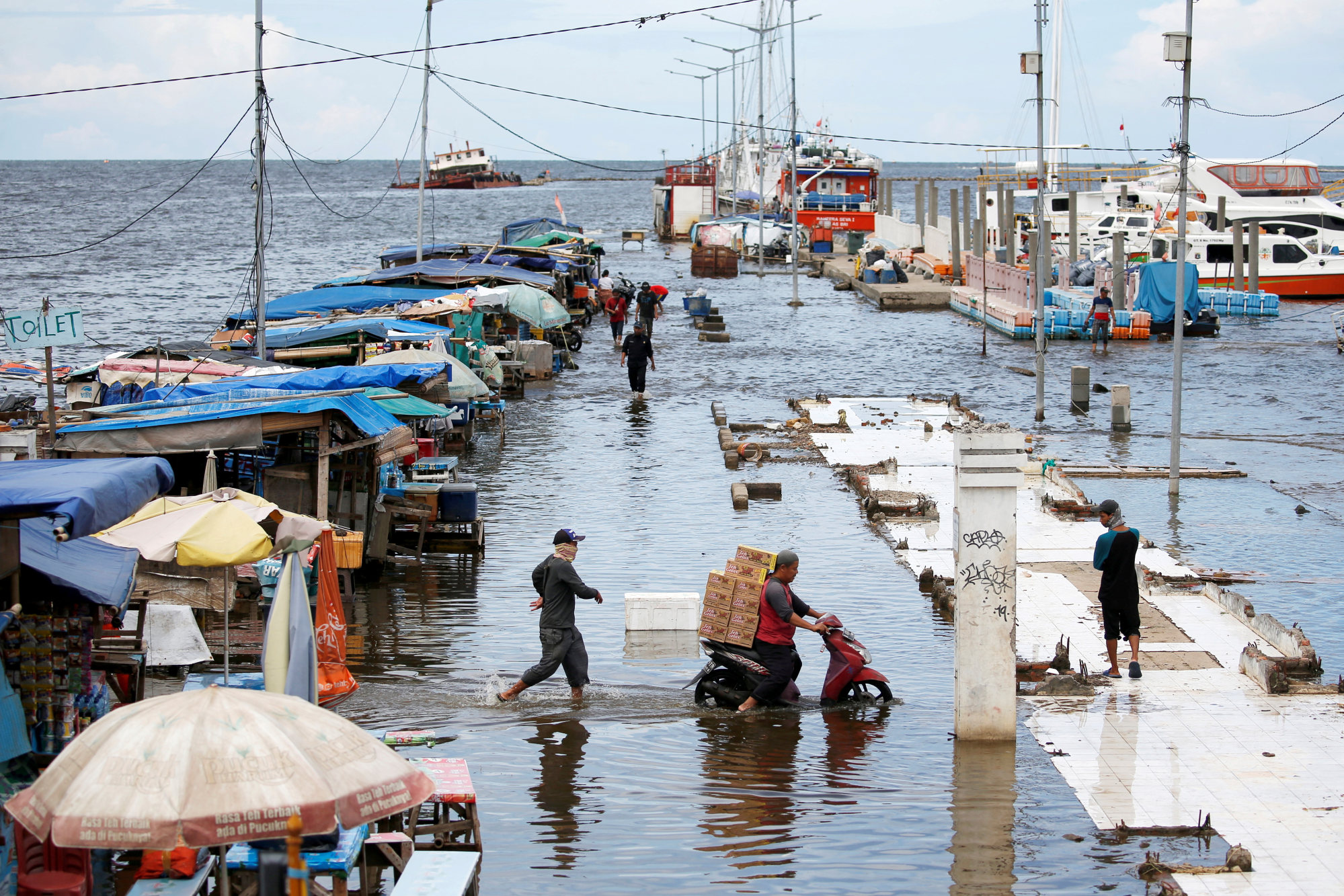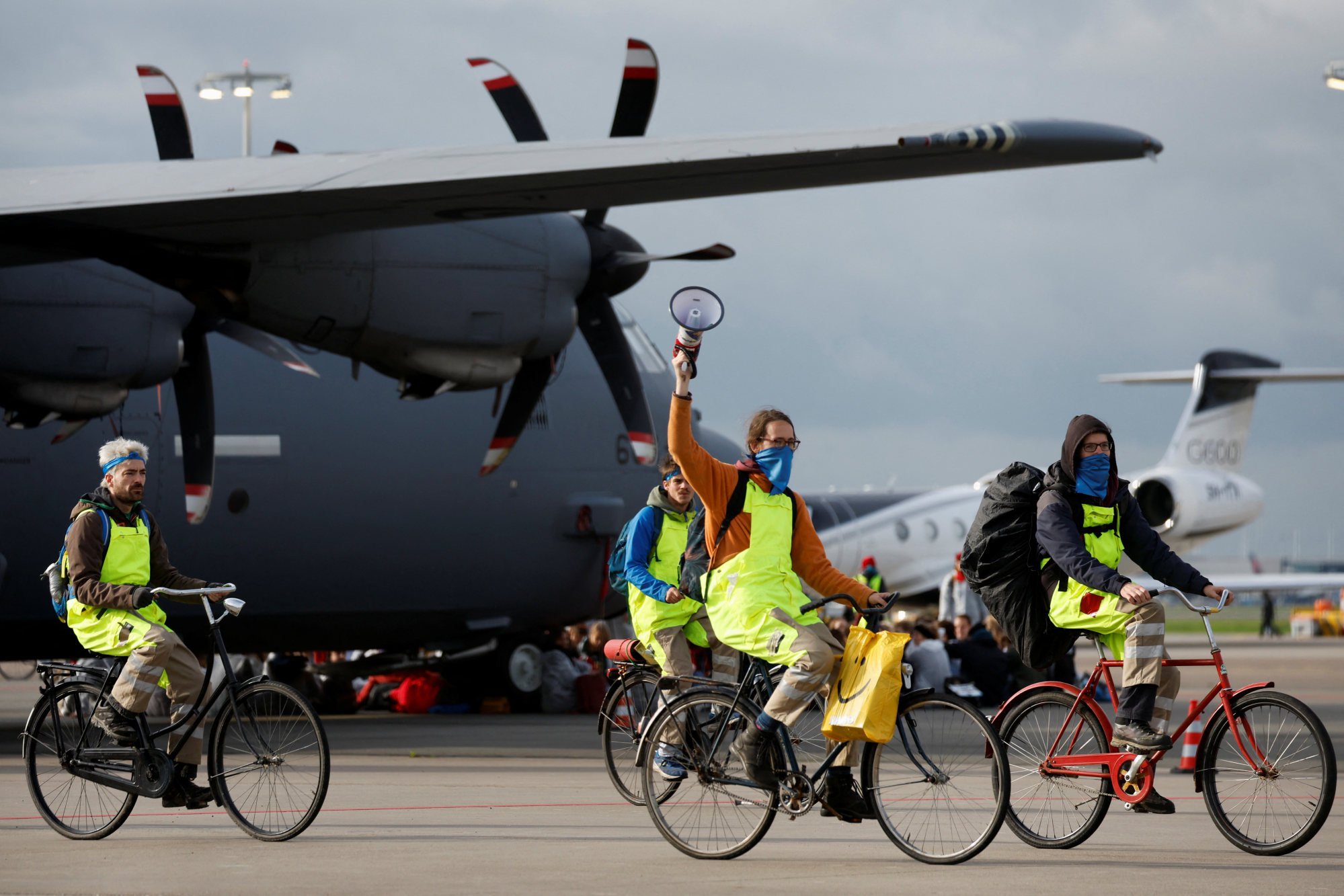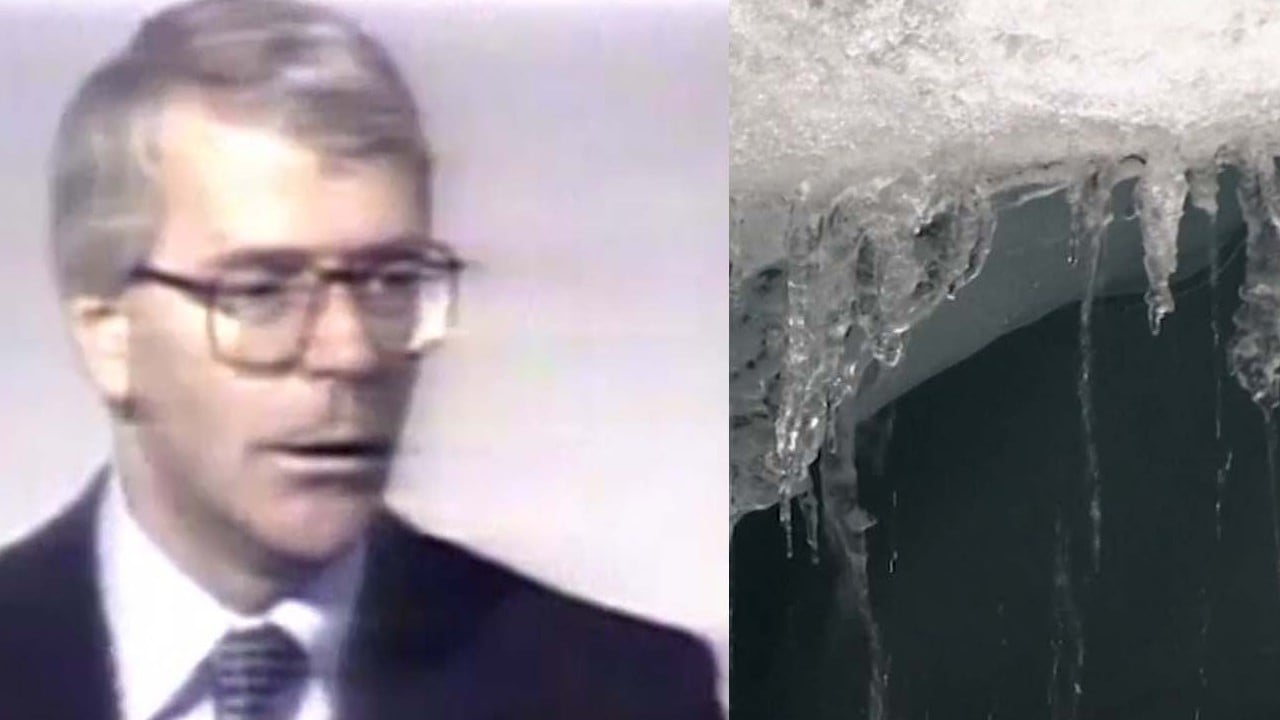
‘We need to rebel’: climate change needs radical response, says XR activist ahead of COP27
- Extinction Rebellion (XR) co-founder Gail Bradbrook says bold action, inspiration and acting together is needed to deal with climate change
- ‘You can’t leave it to indigenous people dying on the front lines. And you can’t leave it to activists. We all have to participate’
Soup on Vincent van Gogh paintings, mashed potatoes on a Monet masterpiece: climate activists are taking increasingly daring action to grab headlines, and it is working.
For Extinction Rebellion (XR) co-founder Gail Bradbrook, such bold action is needed to draw attention to the “polycrisis” that threatens to tip the world into climate catastrophe and devastating biodiversity loss.
In the latest eye-catching move, activists from the Last Generation group splashed pea soup on Van Gogh’s glass-covered 1888 painting “The Sower” in Rome on Friday.
While the Extinction Rebellion was not behind the recent art protests, the movement has inspired climate action across the world.
Bradbrook said that when people act together, they can make a real difference.
The scientist spoke to Agence France-Presse ahead of the 27th round of United Nations climate negotiations opening on Sunday, branded by Greta Thunberg as “greenwashing” amid concerns that campaigners will be blocked from attending.
She said that in a media-saturated environment it is hard to get attention. “So, people go and do something frankly quite dangerous and daft like getting on the motorway. That’s agitation, and it does get a story in the mainstream consciousness. Evidence, from, for example, research by Colin Davis at the University of Bristol, suggests people may dismiss the activists involved, but their focus on the issues increases. In other words, it works from an awareness-raising perspective.”
She went on: “The next bit is to really inspire people that change is possible. And the third bit is acting together to make sure that the change happens. We need to rewire our economy and upgrade our democracy”.
You cannot leave it to indigenous people “dying on the front lines trying to defend their lands,” she said. “And you can’t leave it to activists. We all have to participate”.
Bradbrook said there was “honour in doing what you can. We can understand that for so many miles driven in a car, there’s so much carbon emitted, and therefore, so much ice will melt”.
But at the same time, she said, “this is systemic and what the system wants you to do is tie yourself up in a knot. It is a very stressful system that we live in.”

She said the “polycrisis” we’re in, “it’s a climate and ecological emergency, a health crisis and inequality crisis and so on. It has many root causes. There’s an elite class of people who we need to rebel against, who are not taking sufficient action, and in some cases, taking us in the wrong direction”.
Climate change weather extremes are already happening, she added. “Look at Bangladesh and Pakistan. Essentially, what the world is saying is “tough”. It’s disgusting.”
One of the first things we did with Extinction Rebellion, she said, was to “move into emergency mode messaging. You tell people the bitter and brutal truth. And then you talk about why it is like that, and therefore what can be done. And then you talk about what that person can do themselves and as part of their group, so there’s a sense of agency”.

She likened it to having “a lump somewhere on your body and you go to the doctor. At the end of the day, the grown-up in you needs to know what the risks are, what the treatment is. The good news is, it starts with being a human being, the best side of being a human being, where we feel part of life”.
She said people have done “really incredible things in times of war, for example. Human beings are really amazing, they’re really up for acting selflessly, and on behalf of the collective. It is hard-wired into us”.
But, she said, “if there is no leadership telling you there’s an issue, and if you get mixed messages, then you don’t act”.
Xi and Biden hold the key to climate action at COP27
She believes there have been “active forces at play to stop us from wanting to do anything. We know that there were large sums of money spent on climate denial. After climate denial, not that it is fully done with, what is the next phase to stop us doing anything? It is these delay stories: technology is going to save us. It’s all for consumers to sort out. Or, what about China?”
She said these were all “psychological tools to give people a story to say to themselves: “I can let this go because it’s too stressful to face”.

.png?itok=arIb17P0)
